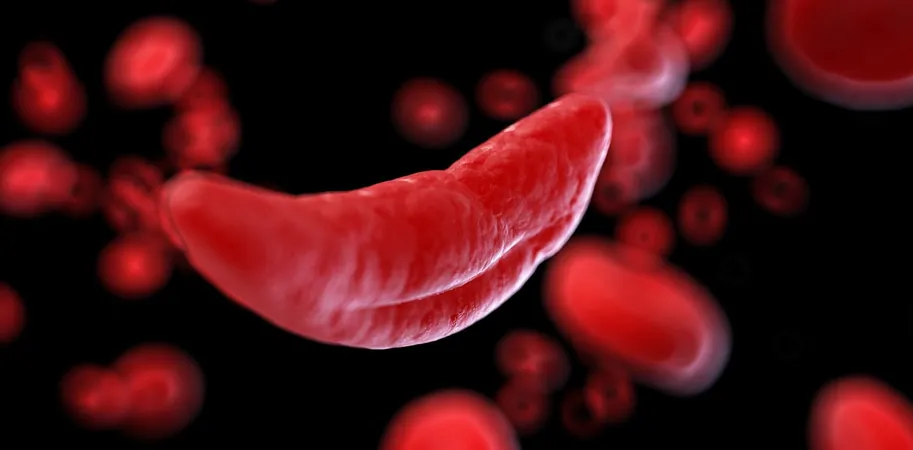
Revolutionizing Colorectal Cancer Treatment: The Promise of ctDNA and Neoadjuvant Immunotherapy Combinations
2024-12-17
Author: Jia
Recent advancements in the field of oncology have highlighted the transformative potential of using circulating tumor DNA (ctDNA) to guide adjuvant chemotherapy decisions for colorectal cancer (CRC) patients. Dr. Stacey A. Cohen emphasized that despite the promising data, larger prospective trials are essential before ctDNA strategies can be integrated into standard practice.
The identification of mismatch repair-deficient (dMMR) or microsatellite instability-high (MSI-H) CRC at diagnostic stages is critical, as new findings suggest that neoadjuvant immunotherapy holds considerable promise for these patients. As Cohen shared in a recent interview, "We are witnessing significant trends arising from data, especially with ctDNA potentially allowing us to tailor treatments more effectively."
According to findings from the observational CIRCULATE-Japan GALAXY trial, presented at the 2024 ESMO Congress, ctDNA positivity correlates with worse disease-free survival (DFS) and overall survival (OS), emphasizing the potential benefits of administering adjuvant chemotherapy for patients exhibiting minimal residual disease (MRD). The trial's inclusion of over 2,000 patients is a step towards determining clearer prognostic indicators for CRC treatment, though the need for robust prospective studies remains.
Cohen further elaborated on the evolution of ctDNA as a prognostic marker, highlighting its strong association with survival rates. The ongoing updates from CIRCULATE-Japan affirm that ctDNA can indicate a higher risk for recurrence. For instance, patients who are ctDNA negative after surgery appear to have significantly improved survival rates, enabling the possibility of less aggressive treatment to minimize unnecessary toxicity.
Moreover, the findings from the NICHE-2 and NICHE-3 clinical trials showcase groundbreaking results involving neoadjuvant immunotherapy for dMMR/MSI-H patients. Notably, in NICHE-2, none of the patients treated with a combination of nivolumab and ipilimumab experienced disease recurrence at three years. These developments highlight the need to reassess surgical approaches traditionally taken for CRC, particularly for patients who may not need immediate surgery.
The NICHE-3 study investigating the effectiveness of nivolumab combined with relatlimab also sparked discussions about the potential for non-operative management as an option for these patients. However, challenges remain in ensuring adequate patient surveillance should surgical interventions be postponed.
As the field continues to evolve, the overarching takeaway emphasizes the importance of identifying MSI status early in the treatment process and the integration of immunotherapy approaches. With a wealth of ongoing research and emerging data in both ctDNA utilization and immunotherapy, the future of CRC diagnostics and treatment appears increasingly promising. Yet, crucial questions linger on the individual application of these advancements, underscoring the necessity for continued investigation to standardize these practices.
As these innovative strategies unfold, the landscape of colorectal cancer management may soon shift, heralding a new era of more personalized and effective treatments for patients. The possibilities generated by the combination of ctDNA analysis and immunotherapy outline a potential pathway to improved outcomes for those battling CRC.



 Brasil (PT)
Brasil (PT)
 Canada (EN)
Canada (EN)
 Chile (ES)
Chile (ES)
 España (ES)
España (ES)
 France (FR)
France (FR)
 Hong Kong (EN)
Hong Kong (EN)
 Italia (IT)
Italia (IT)
 日本 (JA)
日本 (JA)
 Magyarország (HU)
Magyarország (HU)
 Norge (NO)
Norge (NO)
 Polska (PL)
Polska (PL)
 Schweiz (DE)
Schweiz (DE)
 Singapore (EN)
Singapore (EN)
 Sverige (SV)
Sverige (SV)
 Suomi (FI)
Suomi (FI)
 Türkiye (TR)
Türkiye (TR)